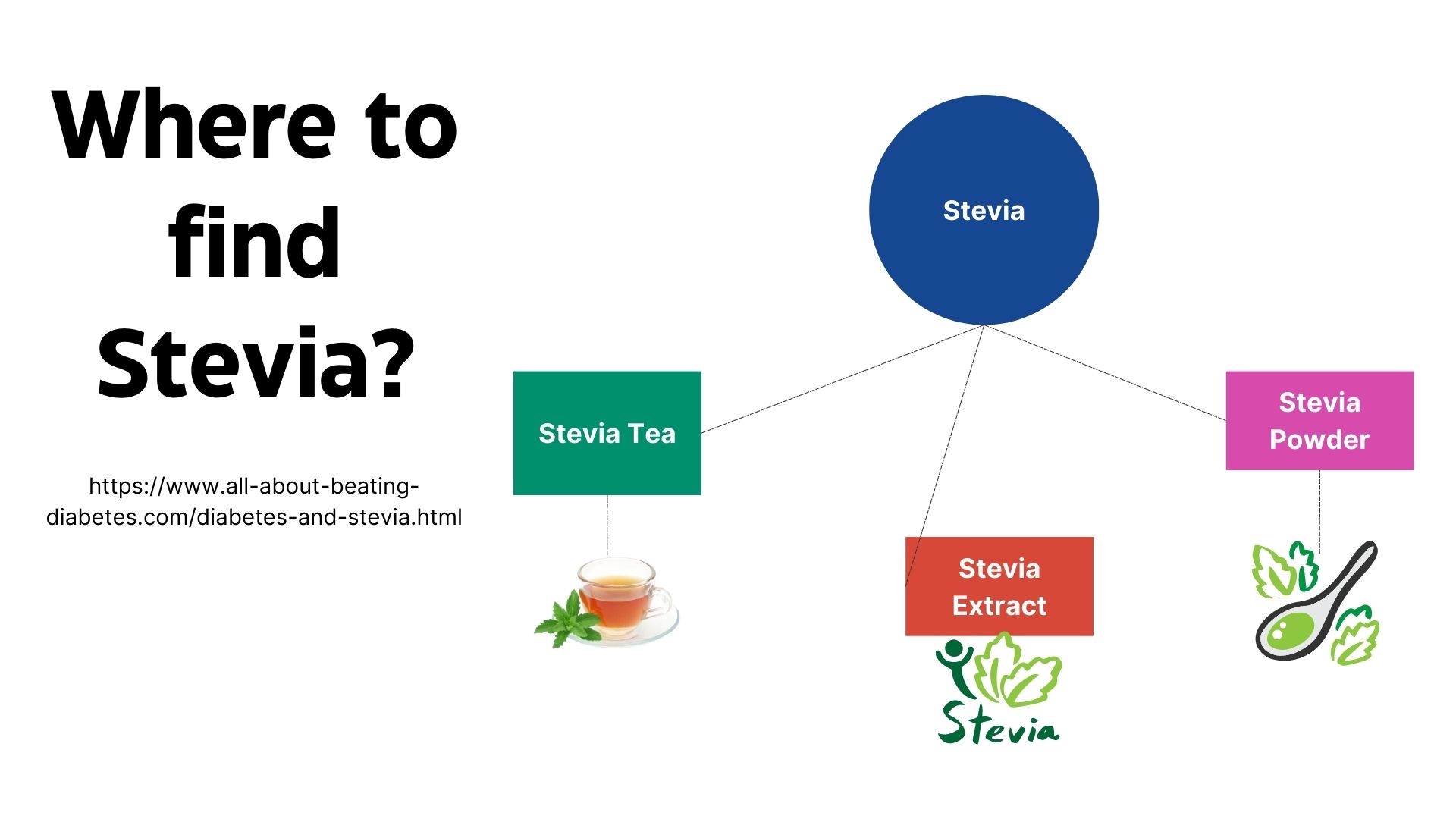What's behind diabetes and Stevia link?
The link between diabetes and Stevia primarily relates to the potential benefits of Stevia as a sugar substitute for individuals with diabetes.
Stevia is a natural, calorie-free sweetener derived from the leaves of the Stevia rebaudiana plant.
It has gained popularity as an alternative to sugar due to its intense sweetness without affecting blood sugar levels.
Stevia: A Natural Non-Caloric Sweetener with Health Benefits
Stevia is a natural non-caloric sweetener derived from the leaves of the Stevia rebaudiana plant. Originating from Paraguay, this small green plant offers a delicious and refreshing taste that is significantly sweeter than table sugar.
Stevia is a natural sweetener derived from the leaves of the Stevia rebaudiana plant. It contains several sweet compounds, with stevioside and rebaudioside A being the most abundant and intensely sweet components.
Stevia extracts, known as steviosides, exhibit a sweetness 200-300 times greater than sugar.
However, beyond its sweetening properties, Stevia contains various nutrients, including vitamins A and C, phosphorus, potassium, riboflavin, fiber, protein, magnesium, iron, zinc, and calcium, which have been associated with potential health benefits.
Stevia - an excellent choice for diabetics
For individuals with diabetes who need to avoid sugary foods and regulate blood sugar levels, selecting the right sweetener is crucial.
Artificial sweeteners like aspartame or Splenda should be avoided due to potential health risks associated with their additives.
Natural sweeteners, on the other hand, offer comparable taste, potency, and fewer calories while being considered healthier alternatives.
Among the natural sweeteners, Stevia has been recognized as one of the best and safest sweetening substances.
The mechanism of action of stevia involves its interaction with taste receptors and its impact on blood sugar levels. Here's a breakdown of how it works:
- Taste perception: Stevia's sweetness is due to the presence of steviol glycosides, including stevioside and rebaudioside A. These compounds interact with taste receptors on the tongue, specifically the sweet taste receptors (T1R2 and T1R3), activating them and signaling to the brain that sweetness is being perceived.
- No calorie intake: Steviol glycosides are non-caloric, meaning they do not provide a significant amount of calories when consumed. They pass through the digestive system without being metabolized into glucose or contributing to the body's energy supply. This makes stevia an attractive alternative to sugar for those looking to reduce calorie intake.
- Impact on blood sugar levels: Stevia does not raise blood sugar levels when consumed. The body does not metabolize steviol glycosides into glucose, so they do not have a significant impact on blood glucose or insulin levels. This makes stevia suitable for individuals with diabetes or those aiming to control their blood sugar levels.
- Safety and excretion: Stevia has been extensively studied for safety and is generally recognized as safe for consumption by regulatory authorities, including the FDA and EFSA. After consumption, steviol glycosides are not absorbed in significant amounts by the body and are excreted primarily through urine and feces.
It's important to note that while stevia is considered safe for most people, individual tolerance and reactions may vary. Some people may find stevia to have a slightly bitter or licorice-like aftertaste.
Additionally, some commercially available stevia products may contain other ingredients or bulking agents, so it's important to check the product label for any additional components.
As with any dietary changes or concerns, it's advisable to consult with a healthcare professional or registered dietitian for personalized advice and guidance.
Other Health benefits of Stevia
The benefits of Stevia extend beyond its suitability for diabetes management. It can also be an effective sugar substitute for those seeking to lose weight.
Research conducted in Japan and South America has demonstrated the positive effects of Stevia in regulating blood sugar levels, improving pancreatic function, and alleviating symptoms of diabetes and hypoglycemia.
Additionally, Stevia may be beneficial for individuals with high blood pressure, digestive problems such as gas and stomach acidity, as well as gum disease and tooth decay by inhibiting the growth and reproduction of bacteria responsible for these issues.
How and Where can you find Stevia?
Stevia is available in different forms, providing various health benefits:
- Stevia Powder: Stevia powder does not have a hypoglycemic effect and can improve glucose tolerance, lower plasma glucose levels, and reduce glucose production in the kidneys.
- Stevia Extract: Stevia extract is commonly found in supplements. It is highly sweet, low in calories, and can enhance blood sugar regulation by improving glucose tolerance, inhibiting glucose absorption, and supporting pancreatic function. Its calorie-free nature makes it suitable for weight management, and studies have shown that regular use can reduce cravings for sweets and fatty foods.
- Stevia Tea: Stevia tea, made from the exotic herb, contains no-calorie sweet molecules and serves as an excellent substitute for artificial sweeteners like sucralose. It can aid in managing conditions such as diabetes, hypoglycemia, and even fungal infections.
Incorporating Stevia into your diet can have positive effects on your general health, including improved digestion, soothing of upset stomachs, and faster recovery from minor illnesses.
However, it's essential to consult with healthcare professionals or registered dietitians to determine the best approach for your individual circumstances.
In conclusion, Stevia is a natural, non-caloric sweetener derived from the Stevia rebaudiana plant.
With its intense sweetness, Stevia offers a viable alternative to sugar without impacting blood sugar levels.
It possesses several health benefits and is particularly advantageous for individuals with diabetes, aiding in blood sugar regulation and weight management.
However, it's important to note that individual responses may vary, and consulting with healthcare professionals is recommended before making significant dietary changes.
|
Written by Dr.Albana Greca Sejdini, Md, MMedSc Medically reviewed by Dr.Ruden Cakoni, MD, Endocrinologist |
Last reviewed 06/08/2023 |
References:
References:
- Steviol Glycoside Content Dynamics during the Growth Cycle of Stevia rebaudiana Bert
- Nutritional, Chemical and Organoleptical Characteristics of Stevioside
- Antihyperlipidemic efficacy of aqueous extract of Stevia rebaudiana Bertoni in albino rats
- Position of the Academy of Nutrition and Dietetics: use of nutritive and nonnutritive sweeteners
- Effects of stevia, aspartame, and sucrose on food intake, satiety, and postprandial glucose and insulin levels
- Effect of Stevia rebaudiana on glucose tolerance in normal adult humans
Diabetes complications Questions or Problems? Get Help Here
This is the place where you can ask a question about any aspect of diabetes complications.
It's free and it's easy to do. Just fill in the form below, then click on "Submit Your Question".


